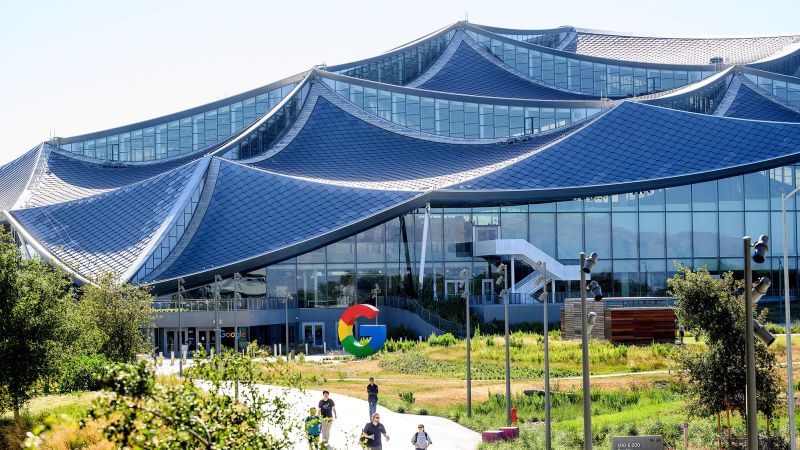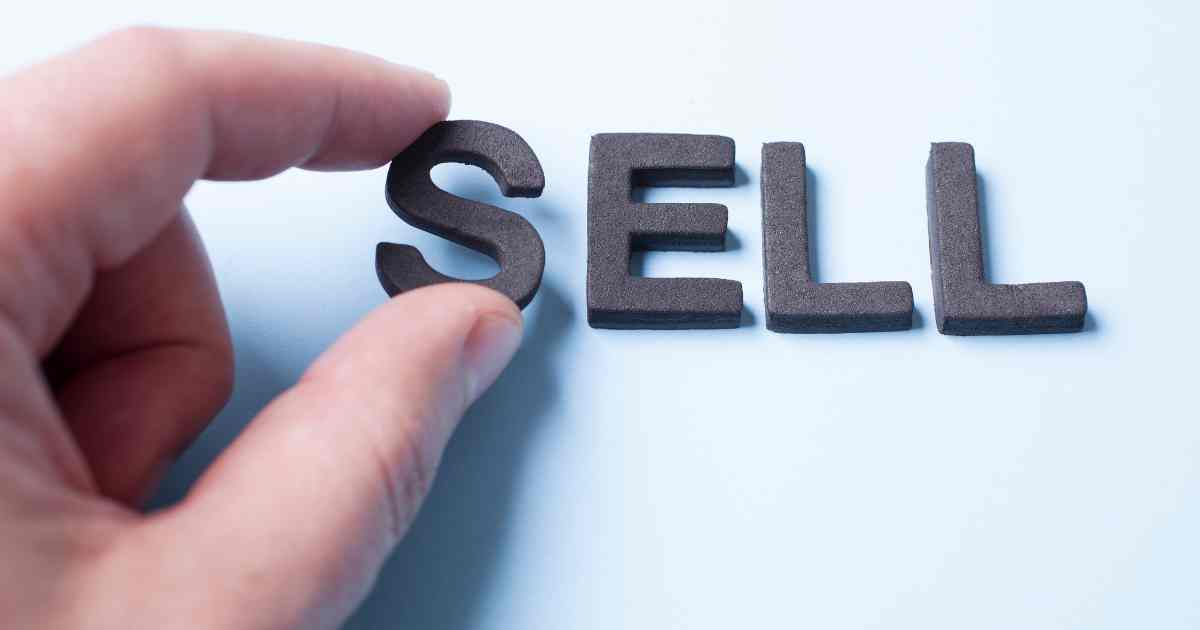The latest coronavirus news from Canada and around the world Saturday. This file will be updated throughout the day. Web links to longer stories if available.
6 p.m.: Public health officials in New Brunswick are reporting 85 new cases of COVID-19.
A government news release says there are now 793 active, reported infections of the disease across the province.
Health officials say there are 61 COVID-19 patients currently in hospital, including 16 people in intensive care.
The provincial government says any household in New Brunswick with a positive case of COVID-19 must isolate for 14 days, regardless of its members’ vaccination status.
The release says more than 10,000 appointments have been booked since Tuesday for children aged five to 11 to receive their first dose of the pediatric COVID-19 vaccine.
Online data shows 88 per cent of New Brunswickers aged 12 and older are now fully vaccinated, while more than 93 per cent have received at least one dose of a vaccine.
4:14 p.m.: A day after declaring a state of emergency for New York, Governor Kathy Hochul is ordering nursing homes and adult-care facilities to make boosters available to all residents after hospitalizations across the state jumped 20 per cent in the past week.
The governor on Saturday reported 2,696 people in hospitals because of the virus, up from 2,249 a week earlier.
Several parts of the state are reporting high positivity rates: 10.2 per cent in western New York; 9.4 per cent in the Finger Lakes; and 9.3 per cent in Mohawk Valley. New York City’s rate, which is the state’s lowest, edged up to 1.69 per cent from 1.65 per cent overnight.
“With the emergence of the omicron variant abroad and warning signs of spikes in cases this winter, the need for basic Covid safety procedures here in New York is more important than ever,” Hochul said in a statement.
Anthony Fauci, President Joe Biden’s chief medical adviser, told NBC’s “Weekend Today” Saturday that the omicron variant may well already have arrived in the U.S. and that “almost invariably ultimately is going to go essentially all over.”
Biden on Friday imposed fresh travel restrictions on nations in southern Africa, where the variant was first detected, joining efforts by other countries to try and slow the spread of a potentially potent new variant.
“While the new omicron variant has yet to be detected in New York state, it’s coming,” Hochul said Friday as she announced steps to prepare for possible hospital capacity and staffing shortages. She signed an executive order allowing state health officials to limit non-essential hospital procedures in facilities that have less than 10 per cent staffed bed capacity.
3:54 p.m.: The U.K. tightened up rules Saturday on mask-wearing and on testing of international arrivals after finding two cases of the new potentially more contagious omicron variant of the coronavirus that was identified just a few days ago in South Africa.
New cases also were confirmed Saturday in Germany and Italy, with Belgium, Israel and Hong Kong also reporting that the variant has been found in travelers.
Because of fears that the new variant has the potential to be more resistant to the protection offered by vaccines, there are growing concerns around the world that the pandemic and associated lockdown restrictions will persist for far longer than hoped.
Nearly two years since the start of the pandemic that has claimed more than 5 million lives around the world, countries are on high alert. Many have already imposed travel restrictions on flights from southern Africa as they seek to buy time to assess whether the omicron variant is more transmissible than the current dominant delta variant.
In an attempt to slow the spread in the U.K., British Prime Minister Boris Johnson said it was necessary to take “targeted and precautionary measures” after two people tested positive for the new variant in England.
“Right now this is the responsible course of action to slow down the seeding and the spread of this new variant and to maximize our defenses,” he told a news conference.
Among the measures announced, Johnson said anyone arriving in England must take a PCR test for COVID-19 on the second day after their arrival and self-isolate until they provide a negative test. And if someone tests positive for the omicron variant, then he said their close contacts will have to self-isolate for 10 days regardless of their vaccination status — currently close contacts are exempt from quarantine rules if they are fully vaccinated.
He also said mask-wearing in shops and on public transport will be required and said the independent group of scientists that advises the British government on the rollout of coronavirus vaccines has been asked to accelerate the vaccination program. This could involve widening the booster program to younger age groups, reducing the time period between a second dose and a booster and allowing older children to get a second dose.
“From today we’re going to boost the booster campaign,” he said.
Britain’s Department of Health said the two cases found in the U.K. were linked and involved travel from southern Africa. One of the two new cases was in the southeastern English town of Brentwood, while the other was in the central city of Nottingham. The two confirmed cases are self-isolating with their households while contact tracing and targeted testing takes place.
The British government also added four more countries — Angola, Malawi, Mozambique and Zambia — onto the country’s travel red list from Sunday. Six others — Botswana, Eswatini (formerly Swaziland), Lesotho, Namibia, South Africa and Zimbabwe — were added Friday. That means anyone permitted to arrive from those destinations will have to quarantine.
3:41 p.m.: News reports in Italy and Germany say that both countries have confirmed cases of the omicron COVID-19 variant.
The Italian news agency LaPresse says an Italian who traveled to Mozambique has tested positive for the omicron variant.
The business traveler landed in Rome on Nov. 11 and returned to his home near Naples. Five family members, including two school-age children, have also tested positive. All are isolating in the Naples suburb of Caserta in good condition with light symptoms.
The variant was confirmed by Sacco hospital in Milan, and Italy’s National Health Institute said the man had received two doses of the vaccine. Italy’s health ministry is urging all regions to increase its tracing of the virus and sequencing to detect cases of the new variant first identified in South Africa.
In Germany, the Max von Pettenkofer Institute, a Munich-based microbiology center, said that the omicron variant was confirmed in two travelers who arrived on a flight from South Africa on Nov. 24. The head of the institute, Oliver Keppler, said that genome sequencing has yet to be completed, but it is “proven without doubt that it is this variant,” German news agency dpa reported.
3:28 p.m.: Canadians should experience the fastest drop in gasoline prices in nearly 13 years on Sunday as fears about a virulent new COVID-19 variant are expected to provide a break of 11 cents per litre at the pumps.
Dan McTeague, president of Canadians for Affordable Energy, said the national average price could drop to about $1.32 per litre but begin to rise again midweek.
“(Sunday) represents the single largest decrease at the pumps we’ve seen going back to 2009,” he said in an interview.
Global crude oil prices plunged Friday over fears about a new COVID-19 variant called Omicron that prompted Canada to ban entry for foreign nationals who travelled through southern Africa.
The January crude oil contract fell 13.1 per cent or US$10.24 on Friday and currently stands at US$68.15 per barrel.
The decrease came as U.S. stock markets closed early Friday because of the Thanksgiving holiday.
“Sunday and Monday are going to be the best days for Canadians to fill up, including British Columbia,” McTeague said
Even residents of flood-ravaged B.C. will save on the province’s high gasoline prices despite facing rationing because severe flooding has shut both the Trans Mountain pipeline and the province’s lone refinery.
12:30 p.m.: Canadian musician Bryan Adams says he has once again tested positive for COVID-19, less than a month after pulling out of a Rock & Roll Hall of Fame performance because of a positive test.
Adams issued an Instagram post on Thursday saying he had tested positive “for the second time in a month” after arriving at the Milan Malpensa Airport in Milan, Italy.
The rocker wrote that he was “off to the hospital” and then followed up with a post Friday showing health-care workers in head-to-toe personal protective equipment administering what he described as a precautionary “anti-thrombosis” shot.
Adams ducked out of a scheduled Oct. 30 appearance at the Rock & Roll Hall of Fame in Cleveland, Ohio, after testing positive for the disease.
His management team said at the time he was fully vaccinated against COVID-19 and not experiencing any symptoms.
Adams’ upcoming album is called “So Happy it Hurts” and his website lists tour dates through the United Kingdom and Europe beginning on Jan. 29, 2022, as well as a show in Vancouver on Dec. 31.
The “Summer of ’69” singer had just concluded a 10-day run of shows in Las Vegas before his positive test in Milan.
“Tonight is the first show for me in nearly two years,” Adams wrote in an Instagram post on Nov. 10, the first night of his Las Vegas stint. “The irony was getting Covid just before this run started (with no symptoms), it’s almost as if it was planned.”
11:38 a.m.: Quebec is reporting 1,171 new cases of COVID-19 today and three additional deaths linked to the virus.
The latest figures mark the second day in a row on which the province has logged more than 1,000 new infections and the highest number of new daily cases recorded since April.
The Health Department says the number of hospitalizations associated with COVID-19 declined by one from the day before to 205, while the number of people in intensive care rose by five to 48.
Authorities say 31,835 COVID-19 tests were analyzed Friday, with a positivity rate of 3.4 per cent.
The Health Department says 23,482 doses of vaccine were administered on Friday, including 14,000 first doses administered to children aged five through 11.
Officials say 84 per cent of Quebecers five and over have now received at least one dose of vaccine, including five per cent of children five through 11.
11:37 a.m.: Ontario is reporting 854 new COVID-19 cases today and two more deaths from the virus.
Health Minister Christine Elliott says 212 of the new infections are among people who aren’t fully vaccinated or have an unknown immunization status, while 45 of the most recent people to be diagnosed are fully vaccinated.
The province says 254 people are hospitalized, including 134 in intensive care and 77 on ventilators.
Provincial figures show 86.2 per cent of people aged 12 and older have received two doses of a COVID-19 vaccine, noting the immunization of kids between the ages of five and 11 continues to ramp up.
The latest case numbers are based on 31,444 completed tests.
The results come a day after Canada announced a ban on entry for foreign nationals who travelled through southern Africa due to fears about a new variant called Omicron.
10:53 a.m.: Britain became the latest country Saturday to report cases of the new potentially more contagious omicron variant of the coronavirus as governments around the world sought to shore up their defenses by slapping restrictions on travel from nations in southern Africa.
Amid fears that the recently identified new variant has the potential to be more resistant to the protection offered by vaccines, there are growing concerns that the pandemic and associated lockdown restrictions will persist for far longer than hoped.
U.K. Health Secretary Sajid Javid confirmed that two people have tested positive with the omicron variant in the southeastern English town of Chelmsford and in the central city of Nottingham. He said the cases were linked and related to travel from southern Africa.
Javid said the two confirmed cases are self-isolating alongside their households while contact tracing and targeted testing takes place. He also added four more countries — Angola, Malawi, Mozambique and Zambia — onto the country’s travel red list from Sunday. Six others — Botswana, Eswatini (formerly known as Swaziland), Lesotho, Namibia, South Africa and Zimbabwe — were added Friday. That means anyone permitted to arrive from those destinations will have to quarantine.
“This is a real reminder that this pandemic is far from over,” he said. “If we need to take further action, we will.”
Prime Minister Boris Johnson, along with his top advisers, will be holding a media briefing later Saturday.
7:56 a.m.: A retirement residence located in New Sudbury is at the tail end of a severe COVID-19 outbreak that claimed the life of one of its residents.
A source told The Sudbury Star that the outbreak at Chartwell’s Westmount on William retirement residence, which was declared by Public Health Sudbury and Districts on Nov. 5, resulted in a “complete lockdown” of the facility.
The health unit said there were 31 confirmed cases of COVID-19 associated with the outbreak, while Chartwell said it confirmed 26 cases in residents and two in staff members.
In a statement issued on Nov. 24, the long-term-care home said that almost all of the cases associated with this outbreak have been resolved and it has worked diligently to follow all public health guidance to get the situation under control.
“Overcoming the COVID-19 outbreak at Chartwell Westmount on William is our highest priority,” said Sharon Ranalli, the vice-president of marketing and communications at Chartwell.
“Sadly, we had one resident pass away in hospital. Our condolences are extended to their family and loved ones and to their fellow residents and staff for the loss of this community member.”
7:56 a.m.: Public Health Sudbury and Districts announced on Friday that it is once again implementing further measures to curb the spread of COVID-19 in the community.
In a release, the health unit said that COVID-19 case rates in the Sudbury district remain “unacceptably high” and the region is among the “top three most affected jurisdictions in Ontario.”
As a result, effective on Monday, Nov. 29, at 12:01 a.m., businesses and organizations in the City of Greater Sudbury will be required to ensure that workers are conducting their work remotely, unless the nature of their work requires them to be on-site at the workplace.
Public Health is also partnering with area school boards to introduce “voluntary” Rapid Antigen Test (RAT) screening of students.
Other strongly recommended actions include RAT screening or proof of vaccination for students participating in certain extracurricular sports, strengthened health and safety measures, and mandatory daily confirmation of symptom screening at schools.
“We have carefully reviewed recent data and consulted with the province’s Chief Medical Officer of Health,” said Medical Officer of Health Dr. Penny Sutcliffe.
7:55 a.m.: With each passing hour, new restrictions were being slapped on travel from countries in southern Africa as the world scurried Saturday to contain a new variant of the coronavirus that has the potential to be more resistant to the protection offered by vaccines.
A host of countries, including Australia, Brazil, Canada Iran, Japan, Thailand and the United States, joined others, including the European Union and the U.K. in impose restrictions on southern African countries in response to warnings over the transmissibility of the new variant — against the advice of the World Health Organization.
Despite the shutdown of flights, there was increasing evidence that the variant is already spreading. Cases have been reported in travellers in Belgium, Israel and Hong Kong, and Germany also has a probable case.
7:53 a.m.: A total of 61 people who arrived in the Netherlands on two flights from South Africa on Friday tested positive for the coronavirus and were in isolation on Saturday as the world anxiously sought to contain a highly transmissible new coronavirus variant.
Further tests are now underway on the travellers who arrived at Amsterdam’s Schiphol Airport to establish if any of them have the new omicron variant of COVID-19 that was first discovered in southern Africa.
The variant’s swift spread among young people in South Africa has alarmed health professionals. In just two weeks, omicron has turned a period of low transmission in the country into one of rapid growth.
Two planes arrived in the Netherlands from Johannesburg and Cape Town shortly after the Dutch government, along with other nations around the world, on Friday imposed a ban on flights from southern African nations following discovery of the new omicron variant.
The Kennermerland local health authority, which is responsible for the testing and isolation operation, said in an update Saturday that the people who tested positive must quarantine for seven days if they have symptoms and five days if they are symptom-free.
The 539 travellers who tested negative were allowed to return home or continue their journeys to other countries. Under government regulations, those who live in the Netherlands and are allowed to return home must self-isolate for at least five days.
7:53 a.m.: As the world grapples with the emergence of the new highly transmissible variant of COVID-19, worried scientists in South Africa — where omicron was first identified — are scrambling to combat its lightning spread across the country.
In the space of two weeks, the omicron variant has sent South Africa from a period of low transmission to rapid growth of new confirmed cases. The country’s numbers are still relatively low, with 2,828 new confirmed cases recorded Friday, but omicron’s speed in infecting young South Africans has alarmed health professionals.
“We’re seeing a marked change in the demographic profile of patients with COVID-19,” Rudo Mathivha, head of the intensive care unit at Soweto’s Baragwanath Hospital, told an online press briefing.
“Young people, in their 20s to just over their late 30s, are coming in with moderate to severe disease, some needing intensive care. About 65% are not vaccinated and most of the rest are only half-vaccinated,” said Mathivha. “I’m worried that as the numbers go up, the public health care facilities will become overwhelmed.”
She said urgent preparations are needed to enable public hospitals to cope with a potential large influx of patients needing intensive care.
“We know we have a new variant,” said Mathivha. “The worst case scenario is that it hits us like delta … we need to have critical care beds ready.”
What looked like a cluster infection among some university students in Pretoria ballooned into hundreds of new cases and then thousands, first in the capital city and then to nearby Johannesburg, South Africa’s largest city.
Studying the surge, scientists identified the new variant that diagnostic tests indicate is likely responsible for as many as 90% of the new cases, according to South Africa’s health officials. Early studies show that it has a reproduction rate of 2 — meaning that every person infected by it is likely to spread it to two other people.
Saturday 7:50 a.m.: Nearly two years into the COVID-19 pandemic, the world raced Friday to contain a new coronavirus variant potentially more dangerous than the one that has fuelled relentless waves of infection on nearly every continent.
A World Health Organization panel named the variant “omicron” and classified it as a highly transmissible virus of concern, the same category that includes the predominant Delta variant, which is still a scourge driving higher cases of sickness and death in Europe and parts of the United States.
“It seems to spread rapidly,” U.S. President Joe Biden said of the new variant, only a day after celebrating the resumption of Thanksgiving gatherings for millions of American families and the sense that normal life was coming back at least for the vaccinated. In announcing new travel restrictions, he told reporters, “I’ve decided that we’re going to be cautious.”
Omicron’s actual risks are not understood. But early evidence suggests it carries an increased risk of reinfection compared with other highly transmissible variants, the WHO said. That means people who contracted COVID-19 and recovered could be subject to catching it again. It could take weeks to know if current vaccines are less effective against it.
In response to the variant’s discovery in southern Africa, the United States, Canada, Russia and a host of other countries joined the European Union in restricting travel for visitors from that region, where the variant brought on a fresh surge of infections.
Read Friday’s coronavirus news.





















Discussion about this post